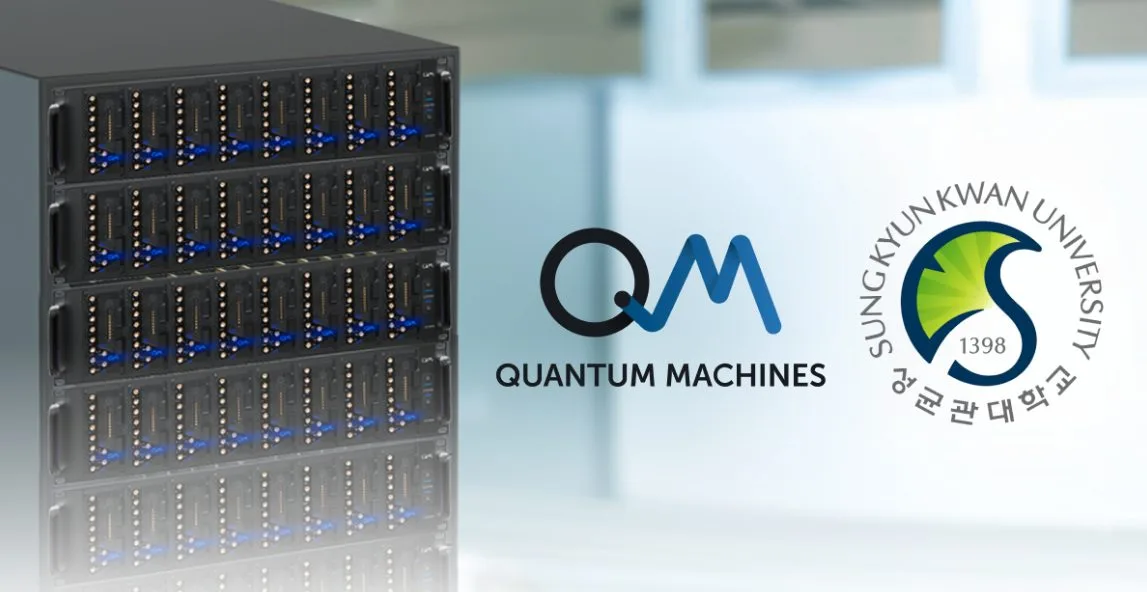Quantum Machines (QM), a leading provider of quantum controllers, will deploy three of its advanced OPX1000 controllers at the Quantum Computing lab of Sungkyunkwan University (SKKU) in Seoul. This is part of South Korea’s national project to advance its quantum computing capabilities. The lab is led by Prof. Yonuk Chong, who also heads the Quantum Information Research Support Center (QCenter) at SKKU. The OPX1000 controllers will be crucial to the QCenter’s projects, including developing and testing architectures for the national Korean quantum computer.
Quantum Computing Advancements at Sungkyunkwan University
Sungkyunkwan University (SKKU) in Seoul, South Korea, has recently announced the addition of three OPX1000 controllers to its Quantum Computing lab. These devices, provided by Quantum Machines (QM), are part of a broader national project aimed at enhancing South Korea’s quantum computing capabilities. The integration of these controllers signifies a substantial improvement to the university’s research facilities.
The Quantum Computing lab at SKKU is led by Prof. Yonuk Chong, who also serves as the Director of the Quantum Information Research Support Center (QCenter) at the university. The QCenter, established in 2020, operates under a large-scale government initiative with a budget of approximately $45 million over five years. The center’s primary objectives include providing systematic education and research to bolster the Korean government’s quantum investments, developing a skilled workforce for the future, supporting the use of a quantum computing cloud, and establishing a robust infrastructure for quantum device production.
The Role of OPX1000 Controllers in Quantum Computing
The OPX1000 is a modular, high-density quantum control platform. It boasts impressive processing power and channel density, and its scalability allows for cost-efficient control for the largest quantum processors available. The OPX1000 will play a crucial role in the QCenter’s ongoing projects, particularly in developing, characterizing, and testing novel architectures for the national Korean quantum computer.
The integration of the OPX1000 controllers into the SKKU facilities represents more than just an upgrade; it signifies a significant step towards achieving the university’s long-term goals in quantum computing research and infrastructure. The QCenter at SKKU aims to make quantum computing research more accessible and sustainable, and the addition of the OPX1000 controllers will undoubtedly aid in this mission.
South Korea’s Investment in Quantum Computing
South Korea’s continued investment in quantum computing demonstrates its commitment to advancing quantum research and development. The strategic upgrade by the QCenter is expected to not only enhance South Korea’s research capabilities but also contribute significantly to the global quantum computing landscape.
Itamar Sivan, co-founder and CEO of Quantum Machines, expressed his belief that this upgrade will have a substantial impact on the global quantum computing landscape. The integration of the OPX1000 controllers into the SKKU facilities is a strategic move that is expected to enhance South Korea’s research capabilities significantly.
Quantum Machines (QM) is a company that aims to accelerate the realization of practical quantum computers. The company’s Quantum Orchestration Platform (QOP) fundamentally redefines the control and operations architecture of quantum processors. The full-stack hardware and software platform is capable of running even the most complex algorithms right out of the box, including quantum error correction, multi-qubit calibration, and more. The QOP allows for unprecedented advancement and speed-up of quantum technologies as well as the ability to scale to thousands of qubits.
External Link: Click Here For More

